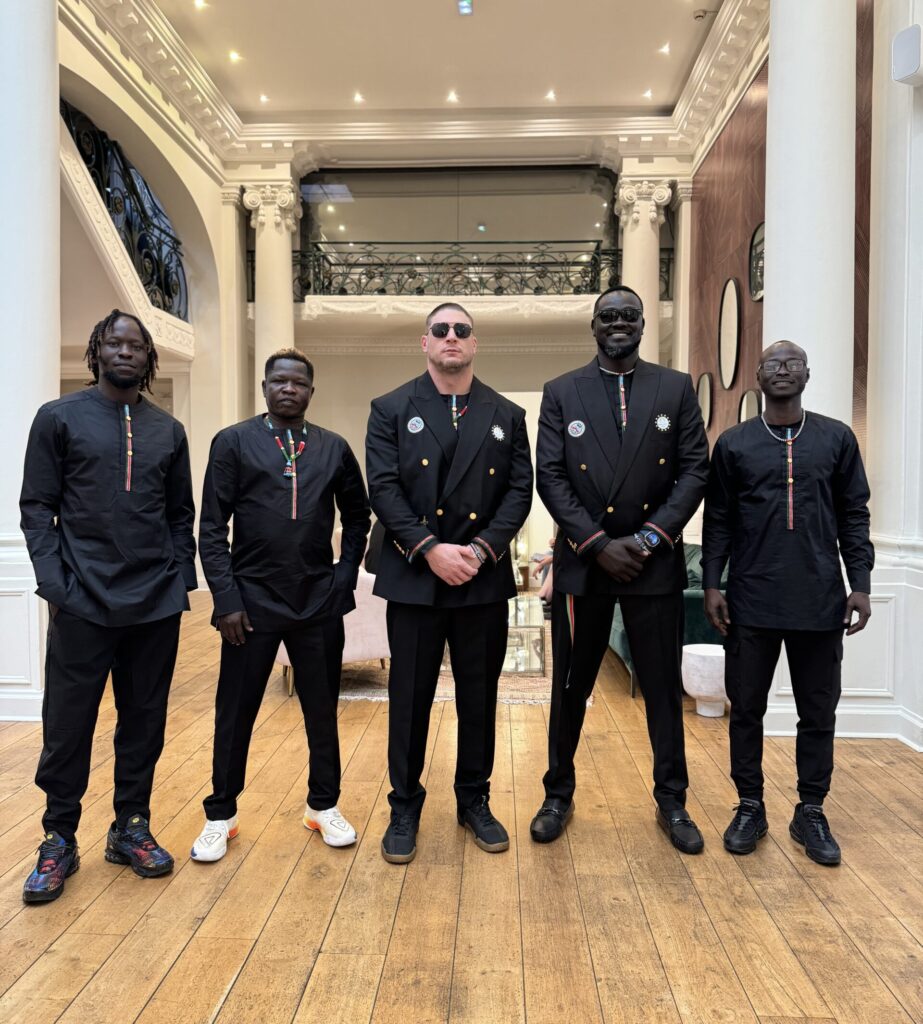MATTER‘s very own Jacob Ross, VP of Business Development, had a front row seat at this year’s Olympics in Paris. Literally. As Performance Coach for the South Sudanese Men’s Basketball Team, Jacob had the inspiring privilege of journeying with this young team through an incredible season of defying the odds to make history in their first Olympic appearance. Here is his story in his own words.
My journey to the Olympics as a Performance Coach for the South Sudanese basketball team began in South Sudan before it was technically a country. I met NBA player Luol Deng in 2010 when I moved to Chicago to work at a private sports performance facility on the north side. Luol was the first person I met, the first person I trained, and we instantly formed a bond of respect and friendship. Over the next year, not only would South Sudan gain its independence, but Luol would also make his first of two NBA All-Star appearances.
Luol has had philanthropy in his DNA since he was a child. He fled what was then Sudan at the age of five to escape the escalating civil war between the north and south. Separated from his parents, he lived with his siblings and other family members in Egypt as a refugee. During that time, NBA legend Manute Bol came to Egypt to teach basketball to the refugee community. Bol taught Luol’s brothers how to play basketball in an alleyway near their apartment, and they, in turn, taught Luol. Had Bol not donated his time to give back, it’s possible Luol might have ended up on a completely different trajectory. That one act of kindness when he was a kid sparked a lifetime of philanthropy and a desire to give back and rebuild South Sudan.
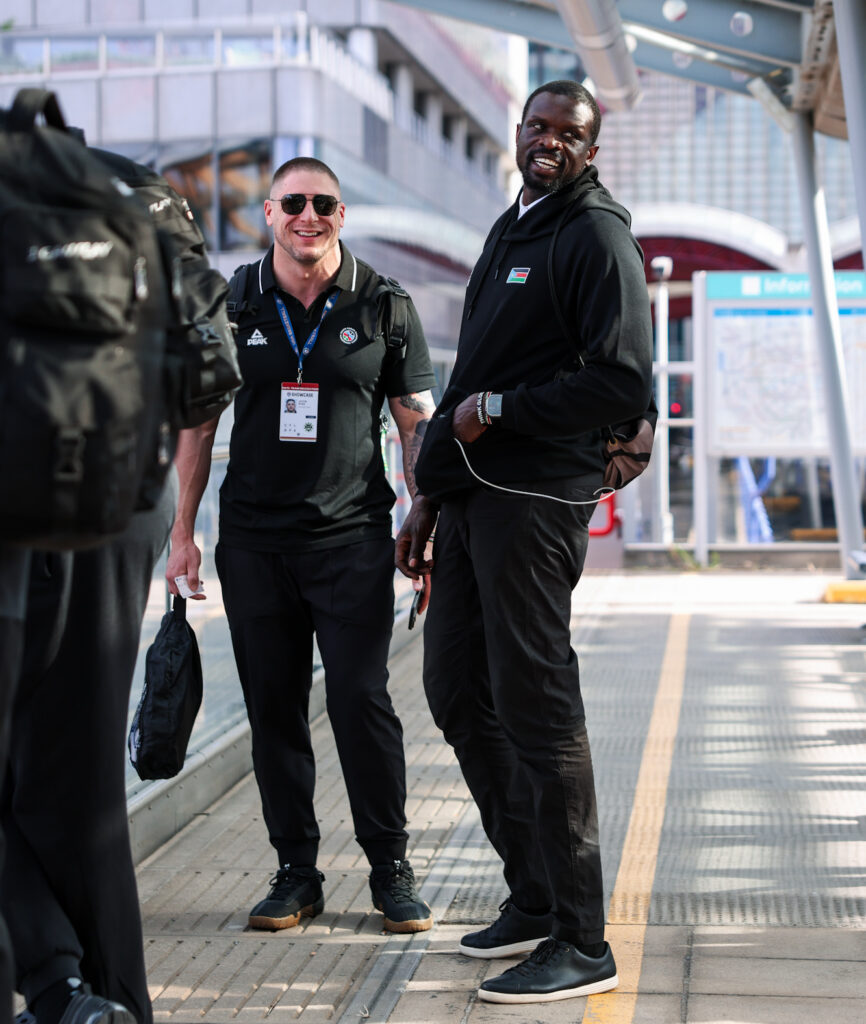
Luol started the Luol Deng Foundation in his rookie year in 2005. Over time, it evolved into more focused work on specific projects. The Deng Foundation held multiple cultural events and basketball camps for the South Sudanese community throughout his years in the NBA. I had the privilege not only of training Luol during his incredible career but also of being invited to participate in his foundation’s efforts. Every basketball camp and cultural event we did deepened my understanding and empathy for the South Sudanese community.
By the time Luol retired in November 2019, the world was on the brink of major changes. The COVID pandemic shortly thereafter forced everyone to stay in one place longer than they ever had before. During this time, Luol had already decided to take the reins of the South Sudanese Basketball Federation by running to be its president and developing a vision for using the national basketball team to further develop South Sudan through sport.
When he took over the national team, Luol’s vision was to qualify for Afrobasket, the championship for Africa. Against all odds, after securing a wildcard spot, we not only qualified but also finished in the top 10 on the continent.
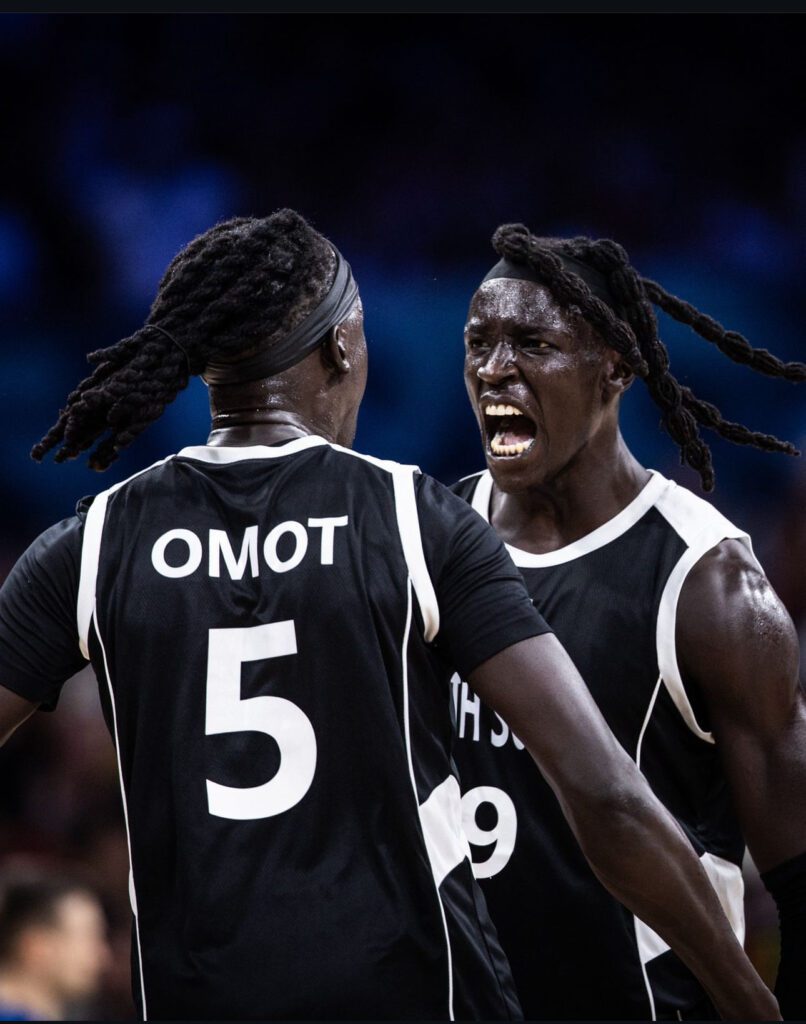
Building on our strong showing at Afrobasket, we began the qualification process for the FIBA Basketball World Cup. Only four teams from Africa qualify for the World Cup, and it’s a four-window process of playing three games per window—12 games total—to determine who qualifies. During this span of over a year and a half, South Sudan went 11-1, setting a record for the best qualification run in FIBA history and becoming the first team ever to qualify for the World Cup on their first attempt, finishing as the number one team in Africa.
We qualified for the World Cup in Alexandria, Egypt—the same city where Luol grew up as a refugee and had not visited since leaving for Great Britain at age 10. After our qualification, I became overwhelmed with emotion on the bus ride back to the hotel. For me, that moment represented the culmination of years of hard work, dedication, vision, and belief—all coming together in the most unlikely of ways. Every workout, every conversation, every flight, every game—everything came rushing back. It hit me like a ton of bricks. And who knew it could get even better than that?
At the World Cup, we were considered underdogs in every matchup. However, we played well and earned automatic qualification for the Olympics by finishing the World Cup as the highest-ranked African team.
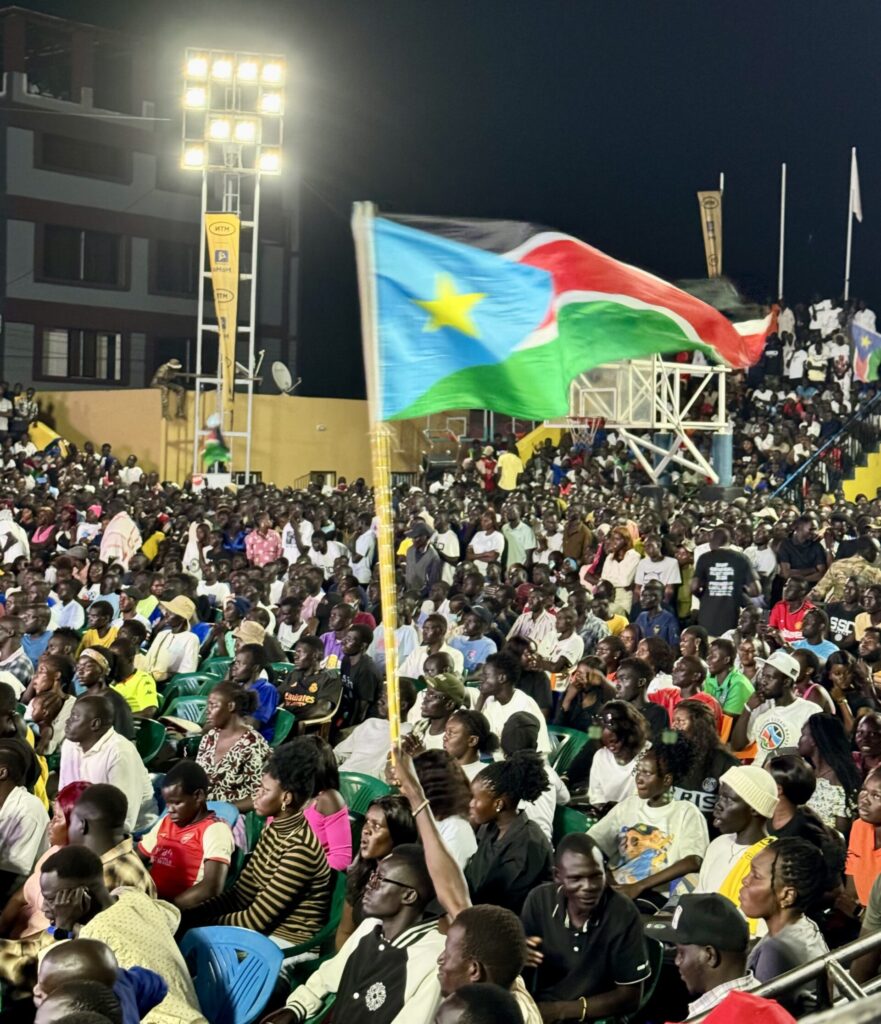
To put this into context, the Olympics is the hardest basketball tournament in the world to qualify for. Only one team from Africa automatically qualifies, along with seven other automatic qualifiers from different regions based on World Cup performance. We became the first team ever to qualify for the Olympics on their first try—a feat most countries never achieve, or only do so after decades of work and infrastructure investment in their programs. During this time, we also rose in the world rankings from essentially last place to a top-40 team globally.
As we prepared for the Olympics in France, we continued to break new ground by being the first African team to hold an Olympic training camp in Africa. Since there is still no indoor court in South Sudan, Rwanda graciously hosted us at their national stadium for our training camp. After two weeks there, we spent a week in Spain playing two friendly games against Argentina and Portugal, then went to London to play Team GB and Team USA for a final warm-up.
That warm-up game against the USA became our “game watched around the world.” After a rough start, South Sudan led by as many as 14 points and continued to push against some of the greatest basketball players of all time, including LeBron James, Stephen Curry, and Kevin Durant. Team USA didn’t go quietly, however. Even in a warm-up game, they fought back hard. Down by one point with 20 seconds left, LeBron did what LeBron does—he scored a contested layup to put the United States up by one.
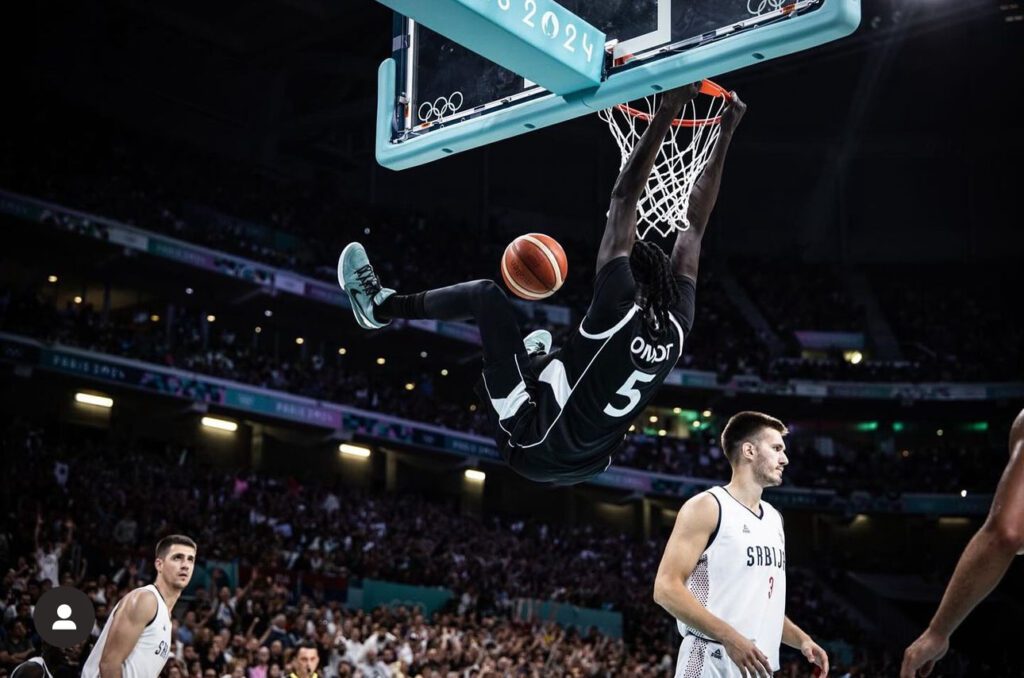
Although our South Sudan basketball team lost by one point, it was as close to a moral victory as you could get. Had we won, the conversation might have shifted to “What’s wrong with Team USA?” But by proving we could stand toe-to-toe with the best, the conversation shifted to “Who is South Sudan? Where are these players from? Let’s learn more about the country.” We became the number one topic on X (formerly Twitter), trended worldwide on multiple platforms, and in one two-hour basketball game, the world learned more about South Sudan than they had in its 13 years of existence.
From Great Britain, we traveled to France to finally play our three Olympic basketball games. We continued to make history by winning our first Olympic game against Puerto Rico, becoming the first African team to win in the Olympics in 24 years. We then faced, in my opinion, the two toughest teams in the Olympics—Serbia and Team USA again. Even though we played hard in both games and competed closer than most other teams, we ultimately lost and didn’t qualify for the next round. But if there’s any consolation, Team USA went on to win gold, and Serbia took home bronze—the two teams we lost to ultimately became two of the best in the world.
After the Olympics, we flew back to Juba, where the team was welcomed by thousands at the airport, in a parade, and at the outdoor stadium to celebrate their success. During the Olympics, a massive outdoor screen was set up at the national outdoor stadium, and a standing-room-only crowd filled it to capacity to watch South Sudan play together. Rain or shine, win or lose, not one person left early. They applauded constantly as if each play were a deciding factor, and even after a loss, every single person stayed until the end to cheer and show their pride and gratitude for being represented so well on the Olympic stage.
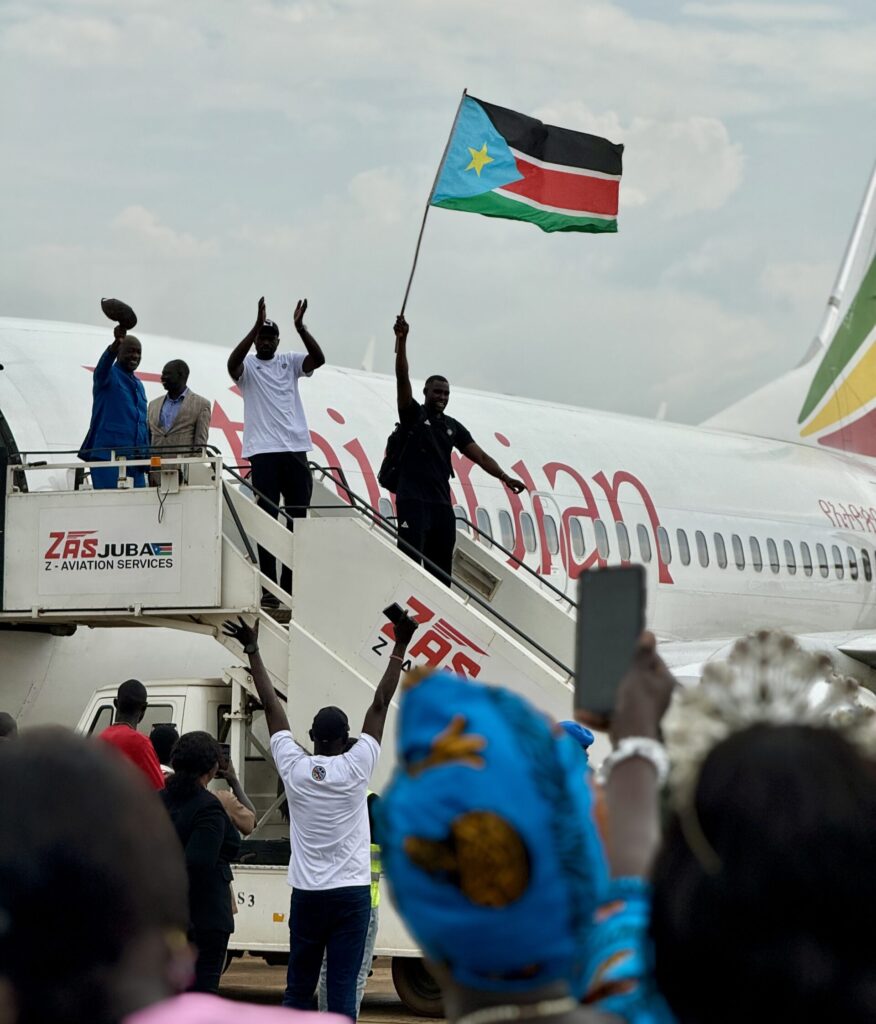
When we met with the South Sudanese president, he told us that this was the first time since independence the country had been truly unified and hopeful. And he pledged to build the first indoor basketball stadium in South Sudan to continue to support the team. He then directed the minister of youth and sport to create more opportunities to what LDF is doing to support the growth and development of the youth in South Sudan.
At the LDF courts, our girls program grew by 30% over the Olympics due to families, seeing the success of our team, resulting in a changed belief that sport can be good and helpful for the development of their daughters. Even for individual players, some of them got to return to South Sudan for the first time in their life. They were able to meet family members they had never met, inspire in person next generation of youth.
There are many incredible, undeniably magical aspects of this story, but one of the most special for me is how it became my story. How does a kid from a farm in Pittsburgh, Texas, end up traveling the world with the chance to impact an entire generation of South Sudanese through the work led by his best friend, Luol Deng? The best writers couldn’t have scripted it.
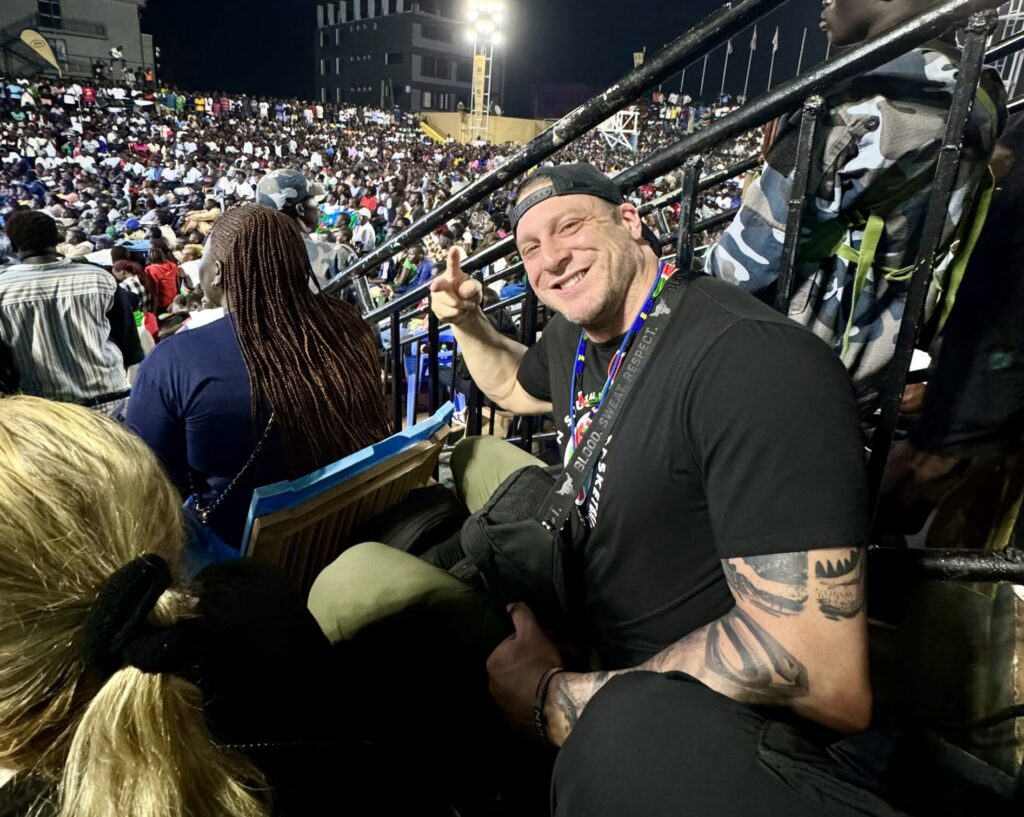
In many ways, this story reflects what I believe to be true about meaningful work: it’s not about trying to solve all the world’s problems in one fell swoop. It’s about positively impacting communities where and when you can, based on where you’re at. You have to take advantage of the opportunities right in front of you. For me, that started with doing my best to train Luol in a small gym in Chicago, helping him become the best basketball player he could be. Over time, my role shifted to supporting Luol’s vision of growing and developing South Sudan. That led to LDF partnering with MATTER on many projects already and an infinite number of possibilities await the blank canvas of South Sudan.
You MATTER. Your thoughts, ideas, and actions can change the world. Luol believed it, I believed it, and for many in South Sudan, we might have just accomplished it. Always more work to be done, but I am incredibly grateful for this moment of reflection and excited for the future. After all, I couldn’t have planned the last 14 years. Only God knows what the next hold in store!
